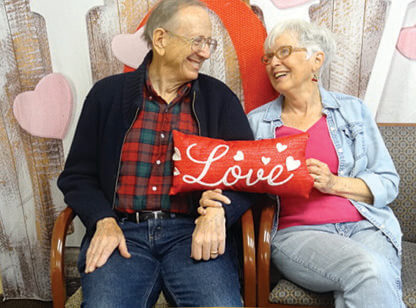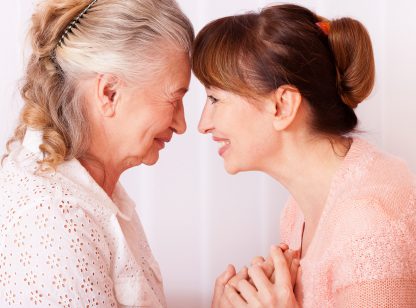All of us will eventually have to face the end of life, but some of us will find ourselves confronted with that prospect more quickly and unexpectedly than anticipated—after suffering an accident, for example, or when diagnosed with a terminal illness. Or it may be that a loved one must suddenly prepare emotionally and in practical terms for their dear one’s imminent demise.
At CancerPartners, the local nonprofit that provides free-of-charge emotional and educational support for all those affected by cancer, end of life issues come up frequently. Patients and their loved ones call upon us both for professionally led support groups and for guidance to other resources, especially if they or their loved one find themselves facing death sooner than anticipated. The purpose of this article is to share insights and resources we’ve been fortunate to gather.
Our list of valuable resources, besides friends and family:
• Social workers at the hospital where receiving care;
• Hospice care;
•
Individual therapists (especially helpful for those unable to talk with family and friends);
•
Support groups such as those at CancerPartners, for people with cancer, their caregivers, and children’s and teens’ grief and loss support groups;
• One’s spiritual community;
• Websites and books such as Peaceful Dying by Daniel R. Tobin;
•
The Cancer Legal Resource Center, especially helpful for advance directives, estate planning, custody and guardianship of minor children, wills and trusts, power of attorney. Assistance line: (866) 843.2572, cancerlegalresources.org; and
•
Compassion & Choices, a nonprofit organization dedicated to care and choice at the end of life. (800) 247.7421, compassionandchoices.org.
A great deal of insight and practical information comes from Karen Morin Green, RN, a retired oncology and hospice nurse who now serves as the volunteer lead for Access Team Southern California of Compassion & Choices. Over the years she has observed how people react to their situation. The initial reaction depends on such factors as age and chronic illness—“The younger ones may have more they still want to accomplish.”—but generally everyone experiences shock and initial denial. Then some reach out—they may even want to discuss death and dying but find that family and doctors are on a different page—while others do not. “We need to start conversations about death and dying earlier,” Green says, “to help ensure everyone gets the end of life option they would like.”
The Compassion & Choices website offers information on:
- Pain and symptom management—use of medications and other therapies such as massage, acupuncture and aromatherapy, to bring comfort;
- Hospice—focuses on quality of life rather than length of life, with the goal of comfort;
- Voluntarily stopping eating and drinking (VSED)—includes pain and symptom management, with families working closely with medical facilities staff, and in-home VSED medically managed to minimize discomfort;
- Declining or stopping life-sustaining treatment—treatments for health conditions or to prolong life, such as a feeding tube, dialysis or medications can be refused or stopped at any time. Pain and symptom management are used to ease any discomfort;
- Palliative sedation—being medicated to reduce consciousness (must be medically managed by a health care provider) to bring relief for extreme pain and suffering;
- Medical aid in dying—a safe and trusted medical practice in which a terminally ill, mentally capable adult with a prognosis of six months or less to live may request from his or her doctor a prescription for medication that they can choose to self-ingest to bring about a peaceful death. Seven states authorize medical aid in dying; California’s law is currently being contested.
Because it’s so important to communicate well with one’s doctor, Green suggests turning to the website’s “diagnosis decoder” for help. She also suggests you have an advocate at your side, someone else to listen to medical providers to help to understand the process.
Green stresses the importance of discussing your feelings openly with family and appointing a health care advocate who you know will stand up for your wishes, no matter what they are. She reiterates how helpful support groups are, whether in person or online, because “we know that those who talk to others who have gone through the same process feel less isolation—knowing and seeing others who are at various stages of a similar illness can be comforting and enormously helpful to patients.”
The takeaway? Start the conversation early and familiarize yourself with resources now, even while in good health, so as to be in a more peaceful and knowledgeable frame of mind when the inevitable time comes.
April Hanig, MA, LMFT, is a facilitator and former program director at CancerPartners. Anita Roark, MA, is communications coordinator. They can be reached at (760)770.5678, [email protected] or [email protected]. More information about no-cost support groups and healthy lifestyle classes at cancerpartners.org.
















































Comments (0)